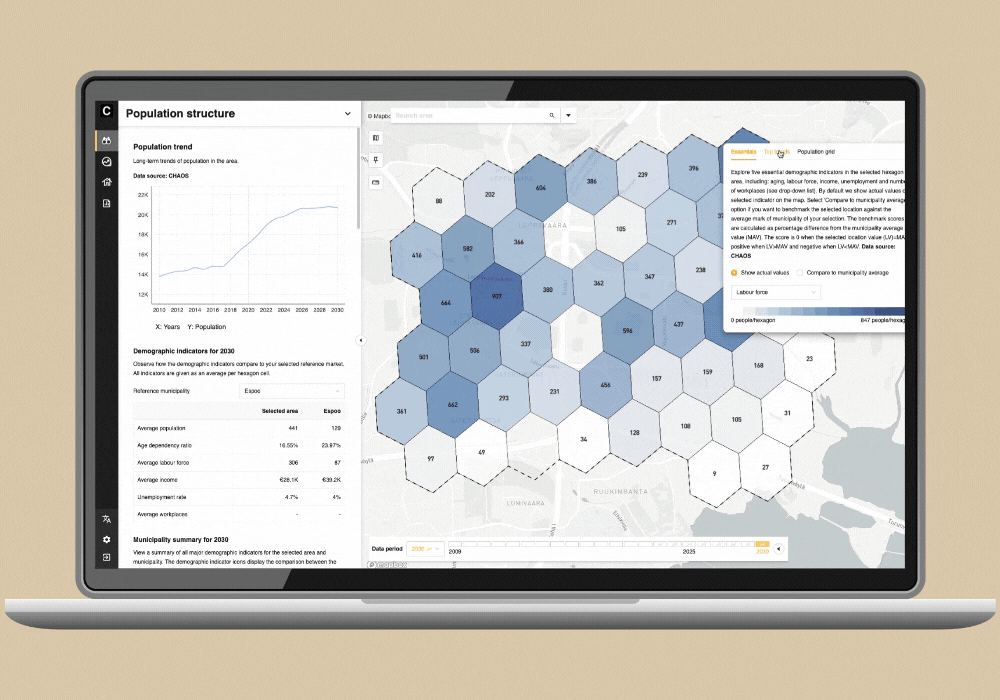top of page






%20(400%20%C3%97%20250%20px)%20(300%20%C3%97%20150%20px)%20(1619%20x%201080%20px)%20(1619%20x%20900%20px)%20(.jpeg)

Optimise your business with location intelligence
CHAOS provides solutions to simplify complex decisions for
Analyse, simulate, validate
CHAOS helps you understand the area and make informed decisions there
Why CHAOS
Subscribe to our newsletter
bottom of page












